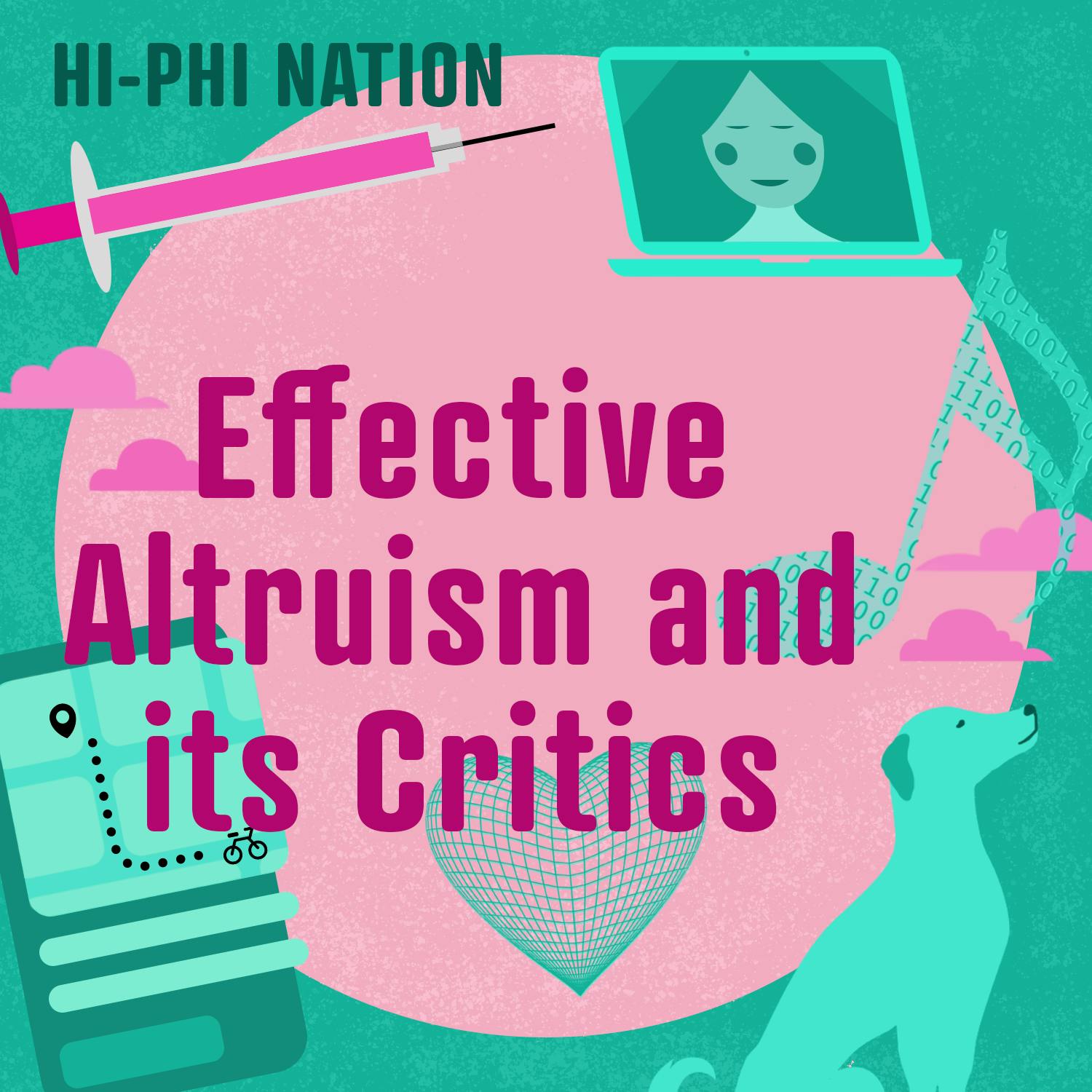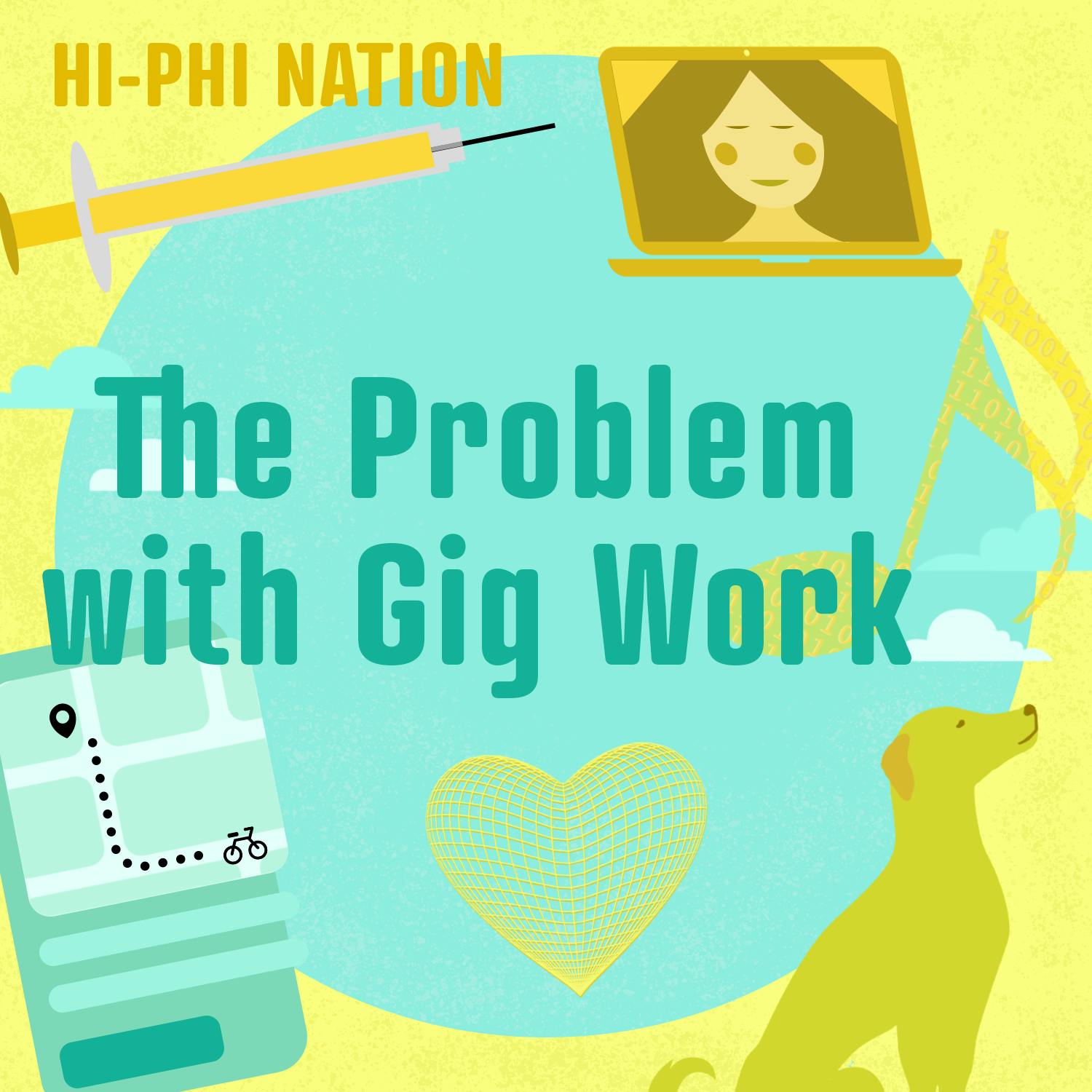Discover Slate Business
Slate Business

819 Episodes
Reverse
In March 1990, a story broke that shocked the nation: George H.W. Bush had banned broccoli from Air Force One. The frenzy that came next would change the fate of a vegetable—and maybe even alter the course of a presidency.
This episode was written by Olivia Briley and Josh Levin, One Year’s editorial director. One Year’s senior producer is Evan Chung.
This episode was produced by Olivia Briley and Kelly Jones.
It was edited by Joel Meyer and Evan Chung.
Derek John is Slate’s executive producer of narrative podcasts.
Merritt Jacob is senior technical director.
Join Slate Plus to get a special behind-the-scenes conversation at the end of our season about how we put together our 1990 stories. Slate Plus members also get to listen to all Slate podcasts without any ads.
Learn more about your ad choices. Visit megaphone.fm/adchoices
A middle-aged single dad in Chicago was outraged by all the cigarette billboards popping up in Black communities. In 1990, he picked up a paint roller and became an anti-tobacco vigilante. And he did it all under a secret identity.
This episode was written by Josh Levin, One Year’s editorial director. One Year’s senior producer is Evan Chung.
This episode was produced by Kelly Jones, Olivia Briley, and Evan Chung. It was edited by Joel Meyer and Derek John, Slate’s executive producer of narrative podcasts.
Merritt Jacob is our senior technical director. We had mixing help from Kevin Bendis.
Join Slate Plus to get a special behind-the-scenes conversation at the end of our season about how we put together our 1990 stories. Slate Plus members also get to listen to all Slate podcasts without any ads.
Learn more about your ad choices. Visit megaphone.fm/adchoices
On this show we explore three different AI and machine-generated music technologies; vocal emulators that allow you to deep fake a singer or rapper’s voice, AI-generated compositions and text-to-music generators like Google Music LM and Open AI’s Jukebox, and musical improvisation technologies. We listen to the variety of music these technologies generate, and two guitarists face off against an AI in improvised guitar solos.
Along the way, we talk to philosophers of music Robin James and Theodore Gracyk about what musical creativity is and whether machines are more or less creative than human musicians, and Barry gives his take on each of the technologies and what they mean for the future of musical creativity.
Learn more about your ad choices. Visit megaphone.fm/adchoices
Curtis is setting aside a large chunk of money to donate to charity, and it is up to us to persuade him where he should donate it. Luckily, philosophers, economists, and the nonprofit world have been thinking a lot about this issue in recent years. On this episode, effective altruism’s defenders and critics try to persuade Curtis of where he should donate. Who is the most effective in persuading an ordinary person as to the right way to donate to charity? And do the recent scandals involving effective altruism’s biggest donor implicate its philosophical foundations?
We start with arguments that you should always try to save the most lives possible, no matter where they are on the planet. We then hear a critic of that view, who argues that local giving can also be a good. We then turn to the view that we should save humans from extinction from threats like pandemics, nuclear war, and AI takeover. And finally, we hear from a critic of that view, who says we should not blow future risks out of proportion.
Guests include philosophers Richard Yetter-Chappell (Miami), Savannah Pearlman (Indiana), Shakeel Hashim (Center for Effective Altruism), and Seth Lazar (Australia National University).
Learn more about your ad choices. Visit megaphone.fm/adchoices
Willy and Heidi were both gig workers for Shipt, the fast-delivery app for groceries or same-day shopping. In 2020, they both realised: the pay algorithm had changed. Now, they couldn’t tell what a job would pay, or whether it would earn or lose them money. Instead of just taking it, they decided to fight back.
In the gig economy, companies like Shipt, Instacart, and UberEats all use black box pay algorithms to try and get workers to accept gigs but hide information from them to do so. Early in the pandemic, a rag tag group of gig workers tried to resist, and found someone at MIT to help them.
Host Barry Lam talks to them about the steps they took, and political philosopher Daniel Halliday (University of Melbourne) talks about the differences between wage labor and freelance labor and why he thinks the biggest gig economy companies are morally suspect. Then, we talk the future of regulation and worker-owned apps and delivery platforms.
Guests include Drew Ambrogi (coworker.org), Dan Calacci (MIT). This is an in-depth, longform version of a story originally done for WNYC studio’s Radiolab in their Gigaverse episode.
Learn more about your ad choices. Visit megaphone.fm/adchoices
When Justin’s mom was diagnosed with cancer, he knew he wanted to keep talking to her after she died. So together they made an AI version of her, training it on her speech patterns and memories. Now he is scaling his findings so that anyone can continue their relationships with loved ones after their deaths. Justin even believes this can one day lead to digital immortality.
Grief experts are only now dealing with bereaved people who create digital versions of their loved ones. We look at what they say about the phenomenon, and what philosophers think about whether the best AI version of a person can actually be them.
Co-produced with Alexandra Salmon, guests include Justin Harrison, CEO of You, Only Virtual, Dr. Mary-Frances O’Connor, and Dr. Debra Bassett.
Learn more about your ad choices. Visit megaphone.fm/adchoices
At the beginning of World War II, the greatest threat to the American war effort wasn’t the Nazis or the Japanese—it was runaway inflation. The man in charge of stopping it was the country’s “price czar,” Leon Henderson. In 1942, he controlled how much coffee ordinary people could drink and how many tires they could buy. Those rules made him a nationwide villain. But would they save the country?
One Year is produced by Evan Chung, Sophie Summergrad, Sam Kim, and Josh Levin.
Derek John is senior supervising producer of narrative podcasts and Merritt Jacob is senior technical director.
Slate Plus members get to hear more about the making of One Year. Get access to extra episodes, listen to the show without any ads, and support One Year by signing up for Slate Plus for just $15 for your first three months.
Learn more about your ad choices. Visit megaphone.fm/adchoices
In this Money Talks: Elizabeth Spiers is joined by Anna Gifty Opoku-Agyeman, to discuss her book The Double Tax: How Women of Color Are Overcharged and Underpaid. They discuss Anna’s extensive research into how racism and sexism create real economic barriers in the US, why it’s not just women of color who should be worried about this disturbing trend, and what can actually be done about it.
Join Slate Plus to unlock weekly bonus episodes. Plus, you’ll access ad-free listening across all your favorite Slate podcasts. You can subscribe directly from the Slate Money show page on Apple Podcasts and Spotify. Or, visit slate.com/moneyplus to get access wherever you listen.
Podcast production by Jessamine Molli and Cheyna Roth.
Learn more about your ad choices. Visit megaphone.fm/adchoices
Tesla shareholders just approved a trillion dollar (with a t!) pay package for Elon Musk. Is it enough incentive to keep him around the company and away from verbal spats with government officials? Because the whole Musk empire is still reeling from that dalliance.
Guest: Faiz Siddiqui, tech reporter at The Washington Post and author of Hubris Maximus: the Shattering of Elon Musk.
Want more What Next TBD? Subscribe to Slate Plus to access ad-free listening to the whole What Next family and all your favorite Slate podcasts. Subscribe today on Apple Podcasts by clicking “Try Free” at the top of our show page. Sign up now at slate.com/whatnextplus to get access wherever you listen.
Learn more about your ad choices. Visit megaphone.fm/adchoices
This week: Trump’s team has argued to the Supreme Court that his tariffs weren’t about raising revenue, despite his many previous claims to the contrary. Felix Salmon, Elizabeth Spiers, Emily Peck, and guest Jeff Horwitz of Reuters, discuss whether this argument will hold against the law that says only Congress has the right to raise revenue via tariffs and taxes, or if the Supreme Court will agree with the many lower courts that have deemed these tariffs illegal. Then, Jeff breaks down his deep dive into the documents that not only reveal that Meta platforms are rife with fraudulent ads they have failed to block, but also how the company is ultimately profiting from the proliferation of these scams. And finally, the ultimate ode to billionaire whimsy looks to be over before it can begin. The hosts and Jeff discuss the many reasons Mohammed bin Salman’s outlandish plans for a megacity in the desert have failed to be realized.
In the Slate Plus episode: Happy Ham Season to all!
Want to hear that discussion and hear more Slate Money? Join Slate Plus to unlock weekly bonus episodes. Plus, you’ll access ad-free listening across all your favorite Slate podcasts. You can subscribe directly from the Slate Money show page on Apple Podcasts and Spotify. Or, visit slate.com/moneyplus to get access wherever you listen.
Podcast production by Jessamine Molli and Cheyna Roth.
Learn more about your ad choices. Visit megaphone.fm/adchoices
On today’s episode host Kate Lindsay is joined by Manny Fidel, culture writer and cohost of the No Such Thing podcast, to explain how gambling took over the internet. A recent betting scandal not only exposed the chokehold that gambling has on the sports industry, but opened up a larger conversation about how everything on the internet is influenced by gambling. People are betting political candidates and arbitrary fashion choices, all while putting themselves further and further into financial precarity. How did this happen and, most importantly, can anything be done to fix it?
This podcast is produced by Daisy Rosario, Benjamin Frisch, and Kate Lindsay.
Learn more about your ad choices. Visit megaphone.fm/adchoices
Nick Fuentes—an openly antisemitic, openly racist, openly sexist type who once was persona non grata in all but the unseemliest of online spaces—sat down with former Fox News star Tucker Carlson this week, setting off a debate between the “whoa whoa whoa, we’re not Nazis over here” branch of conservatives and the “well now, hold on a minute” wing.
Guest: Ali Breland, staff writer for The Atlantic and author of “The Firewall Against Nick Fuentes Is Crumbling.”
Want more What Next TBD? Subscribe to Slate Plus to access ad-free listening to the whole What Next family and all your favorite Slate podcasts. Subscribe today on Apple Podcasts by clicking “Try Free” at the top of our show page. Sign up now at slate.com/whatnextplus to get access wherever you listen.
Learn more about your ad choices. Visit megaphone.fm/adchoices
Trump’s tariffs went before the Supreme Court this week and even the extremely accommodating Roberts court was having trouble seeing how the president’s vast and capricious application of tariffs is constitutional. But that doesn’t mean they’re going away.
Guest: Justin Wolfers, economist and professor at the University of Michigan.
Want more What Next? Subscribe to Slate Plus to access ad-free listening to the whole What Next family and across all your favorite Slate podcasts. Subscribe today on Apple Podcasts by clicking “Try Free” at the top of our show page. Sign up now at slate.com/whatnextplus to get access wherever you listen.
Podcast production by Elena Schwartz, Paige Osburn, Anna Phillips, Madeline Ducharme, and Rob Gunther.
Learn more about your ad choices. Visit megaphone.fm/adchoices
This week: OpenAI has moved away from being run as a non-profit. Felix Salmon, Elizabeth Spiers, and Emily Peck discuss the stated reasons behind the move and what it actually means to be a not-for-profit company. Then, the rates for next year's Affordable Care Act marketplace insurance have come out, and the prices have skyrocketed, reflecting an increase in healthcare costs across the board in the US. The hosts examine the reasons for this depressing trend. And finally, lovers of Maurizio Cattelan’s “America”, rejoice. Though his original piece was stolen, it turned out there was a spare 14k gold toilet all along and it will be auctioned off at Sotheby’s amid record high gold prices.
In the Slate Plus episode: AI Job Apocalypse…Now?
Want to hear that discussion and hear more Slate Money? Join Slate Plus to unlock weekly bonus episodes. Plus, you’ll access ad-free listening across all your favorite Slate podcasts. You can subscribe directly from the Slate Money show page on Apple Podcasts and Spotify. Or, visit slate.com/moneyplus to get access wherever you listen.
Podcast production by Jessamine Molli and Cheyna Roth.
Learn more about your ad choices. Visit megaphone.fm/adchoices
In this Money Talks: Emily Peck and Felix Salmon are joined by legal scholar Ray D. Madoff to discuss her new book The Second Estate: How the Tax Code Made an American Aristocracy. Ray lays out how the US tax code favors the wealthy to an unbelievable degree, helping them to essentially opt out of the system altogether.
Join Slate Plus to unlock weekly bonus episodes. Plus, you’ll access ad-free listening across all your favorite Slate podcasts. You can subscribe directly from the Slate Money show page on Apple Podcasts and Spotify. Or, visit slate.com/moneyplus to get access wherever you listen.
Podcast production by Jessamine Molli and Cheyna Roth.
Learn more about your ad choices. Visit megaphone.fm/adchoices
For years, conservatives claimed that the Biden administration was pressuring tech companies to censor conservative speech with no solid evidence.
In Trump 2.0, the administration is explicitly bragging about doing the very same thing they accused democrats of. What gives?
Guest: Renée DiResta, Associate Research Professor at the McCourt School of Public Policy at Georgetown and author of “Invisible Rulers: The People Who Turn Lies into Reality”
Want more What Next TBD? Subscribe to Slate Plus to access ad-free listening to the whole What Next family and all your favorite Slate podcasts. Subscribe today on Apple Podcasts by clicking “Try Free” at the top of our show page. Sign up now at slate.com/whatnextplus to get access wherever you listen.
Learn more about your ad choices. Visit megaphone.fm/adchoices
This week: A spectacular heist unfolded at the Louvre, with thieves stealing priceless jewels within 7 minutes in broad daylight. Felix Salmon, Elizabeth Spiers, and Emily Peck unpack what happened, why the world was so delighted by this particular crime, and the reasons the thieves might not get that big of a big score in the end. Then, ADP has decided to refrain from giving the Fed special data access, exacerbating the data shortage amid the government shutdown. The hosts discuss why this is happening along with the other effects of this drawn out Federal standstill. And finally, some Silicon Valley companies are adopting a controversial work schedule that originated in China known as 996 wherein employees work from 9am-9pm 6 days a week. The hosts delve into this concerning trend and how the AI arms race is changing things in Silicon Valley.
In the Slate Plus episode: The hosts share their favorite heist movies.
Want to hear that discussion and hear more Slate Money? Join Slate Plus to unlock weekly bonus episodes. Plus, you’ll access ad-free listening across all your favorite Slate podcasts. You can subscribe directly from the Slate Money show page on Apple Podcasts and Spotify. Or, visit slate.com/moneyplus to get access wherever you listen.
Podcast production by Jessamine Molli.
Get 50% Off Monarch Money, the all-in-one financial tool at www.monarchmoney.com/SLATE
Learn more about your ad choices. Visit megaphone.fm/adchoices
On today’s episode, host Kate Lindsay is joined by writer and streamer Laura Kate Dale to talk about what happened to Emiru at this year’s TwitchCon. The streamer was assaulted during a meet-and-greet, after a number of female streamers had already dropped out of the convention in fear for their safety. What is it about TwitchCon that makes creators feel unsafe, and why are female streamers, in particular, still paying the price?
Get more of ICYMI with Slate Plus! Join for exclusive bonus episodes of ICYMI and ad-free listening on all your favorite Slate podcasts. Subscribe from the ICYMI show page on Apple Podcasts or Spotify. Or, visit slate.com/icymiplus for access wherever you listen.
This podcast is produced by Daisy Rosario, Vic Whitley-Berry, and Kate Lindsay.
Learn more about your ad choices. Visit megaphone.fm/adchoices
Paying a fraction of a penny per stream and diminishing the value of music were bad enough for Xiu Xiu, but when Spotify owner Daniel Ek announced an investment in a German defense contractor, they decided it was time to take the music back.
Guest: Jamie Stewart, musician in the band Xiu Xiu.
Want more What Next TBD? Subscribe to Slate Plus to access ad-free listening to the whole What Next family and all your favorite Slate podcasts. Subscribe today on Apple Podcasts by clicking “Try Free” at the top of our show page. Sign up now at slate.com/whatnextplus to get access wherever you listen.
Learn more about your ad choices. Visit megaphone.fm/adchoices
This week: The downfall of First Brands and Tricolor has led to finger-pointing between banks and private credit firms. Felix Salmon, Elizabeth Spiers, and Emily Peck discuss whether these fraud-related bankruptcies are a sign of major issues to come within the credit market. Then, car prices and sales are up across the board. The hosts cover the state of the auto industry, the spike in EV sales caused by expiring incentives, and what it’s like to own a Crybertruck these days. And finally, QQQ is probably the only ETF you’ve heard of thanks to its aggressive advertising. The hosts explain the unusual structure of the wildly successful ETF that led to a Super Bowl ad level marketing budget but very little profit for its own trustee Invesco.
In the Slate Plus episode: What the heck is going on with matcha prices??
Want to hear that discussion and hear more Slate Money? Join Slate Plus to unlock weekly bonus episodes. Plus, you’ll access ad-free listening across all your favorite Slate podcasts. You can subscribe directly from the Slate Money show page on Apple Podcasts and Spotify. Or, visit slate.com/moneyplus to get access wherever you listen.
Podcast production by Jessamine Molli and Cheyna Roth.
Learn more about your ad choices. Visit megaphone.fm/adchoices














Felix S. sounded so confident in his view of how health insurance is supposed to contain runaway costs for the system as a whole, yet I didn't hear him give a shred of evidence to support this- it made him sound like a corporate HR rep.
I'm waiting for the next episode, when do you release it?
At the time disaster capitalism is murdering people, you should be ashamed of your neoliberal flavor of the month. Be gone.